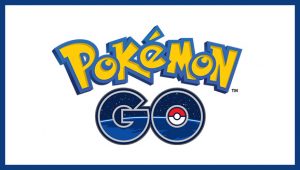 Andrew Touhy, Senior Account Executive
Andrew Touhy, Senior Account ExecutiveThe debut of Pokémon Go was nothing short of…wild. Nintendo’s first mobile-gaming hit recorded more downloads in a week than Tinder has had in its four years of existence, and saw it’s stock shares raise a ridiculous 55%, the fastest bounce in a decade for the company. There is no doubt about it – this has been a monstrous win for Nintendo. This release has brought Pokémon back from the dead and reintroduced it to the general population by ways of a mobile app. Shortly following its release, I tweeted that Pokémon Go was destined to create crisis, and in just the first week, we have seen problems begin to emerge. So far, two men have fallen to their death, armed robbers have used the game to lure lone players, homes designated as ‘Pokémon gyms’ have been overtaken with strangers looking to train their newly captured Pokémon, and officials at the National Holocaust Museum and Arlington Memorial Cemetery have had to ask the public to stop hunting for Pokémon on the sacred grounds.
Now, looking at this through a public relations and crisis management lens, Pokémon Go has been such a success that the risks and negative fallout of the mobile app have not outweighed the benefits. The game has created such a buzz that negative headlines have not resulted in brand reputation damage.
However, if I were advising Nintendo through this, I would suggest that we take a step back and assess what has gone well thus far, and what has not gone so well. Nintendo made a big statement to the world that they are an industry leader and ready and willing to step into the next generation of video games – augmented virtual reality. It is no secret that the initial wave of popularity will settle back into our stratosphere at some point, but the goal is to keep the popularity high. In order to do that I would suggest Nintendo make changes to the game that keep users safe, and make some common sense decisions to remove national monuments and memorials, and museums from the game. In order to maintain their popularity, and avoid facing major backlash and potential litigation, Nintendo and Pokémon Go need to adjust their strategy to satisfy the complaints following what was, by most accounts, a very impressive opening week.